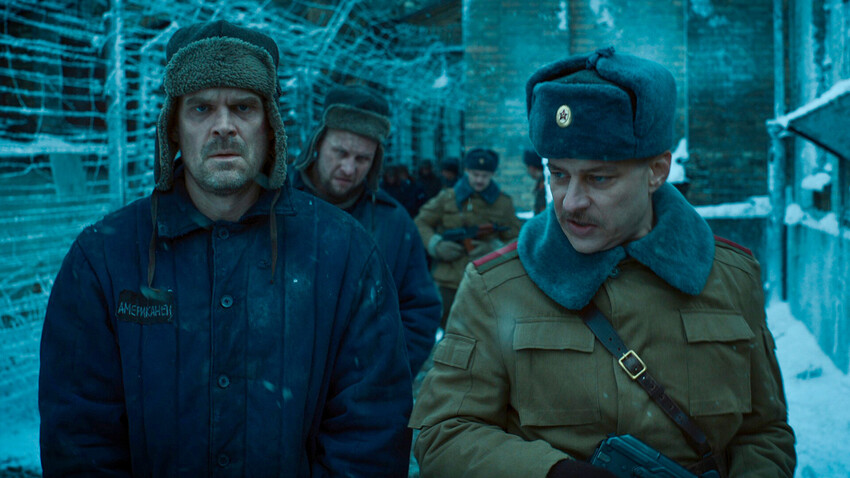
The first seven episodes of the fourth season of the mega-successful Duffer Brothers project Stranger Things have been released on Netflix and deals with the story of the mysterious and powerful girl El (short for Eleven - played by Millie Bobby Brown) and her newfound friends and parents, who are trying to save their town of Hawkins, Indiana from a supernatural evil. It’s not much later that they learn that the fate of the entire world rests on their shoulders. The show has government conspiracies, monsters, alternate dimensions and grizzly scientific experiments. It’s also incredibly “1980s” and people can’t help but be drawn in by the entire atmosphere created by the Duffer brothers.
The final two episodes will air in July 2022 and, it seems that, if evil does lose - it won’t be for long, because we’ve already been promised season 5!
Owing to the time period they were working with, the Duffer brothers weren’t only inspired by the neon aesthetic of the 1980s, but politics, as well - namely, the Cold War between the Soviet Union and the United States, which seeps through in much of the show, but really comes to a crescendo in season 4. Without further ado, let’s jump in and see just how much “Russian trace” there is and whether the Duffer brothers have done their homework and faithfully reproduced all the elements of the Soviet culture of the day!

One of the main locations in season 4 is the Kamchatka peninsula: it even became part of a specially released comic book in March 2022. In it, Russian teenagers also become part of the fight against the monsters from the Upside Down. And the choice of location is not accidental: the peninsula is a four-hour flight from Alaska, although there’s a 15-hour time difference (go figure!). They filmed this “very strange” Kamchatka mostly in Lithuania using artificial snow, which catches the eye, despite season 4 being the most expensive to date (costing about $30 million).
Nonetheless, the Duffer brothers, as they tend to, delve into the details. For example, one of the very first scenes has the warden Antonov (played by German actor Thomas Wlaschiha, known from the ‘Game of Thrones’ series) talking on a payphone to Wynona Ryder’s character. Both the booth and the payphone perfectly replicate ones from the Soviet Union. What’s more - and this is a plus for the Duffer Brothers - there is a seemingly insignificant inscription ‘Kino’ (“Cinema”) next to the receiver. This is the name of a very popular perestroika Soviet rock band, led by Viktor Tsoi. In 1984, they released the album ‘Nachalnik Kamchatki’ (“The Head of Kamchatka”) - a homage to the similarly-named Soviet TV movie - ‘Nachalnik Chukotki’. Viktor Tsoi himself was a very popular figure of the Perestroika era, having written its unofficial anthem ‘Peremen!’ (“We Want Change!”), which can be heard in the no less iconic Sergey Solovyev movie, ‘Assa’. In the fall of 1986 (season 4 of Stranger Things takes place in spring of that year), Tsoi landed a job as a stoker in Leningrad (present-day St. Petersburg), on Blokhina Street, which locals nicknamed ‘Kamchatka’.
By the way, even after the dissolution of the USSR, ‘Kamchatka’ was often used to frighten Russian schoolchildren… the name was given to the desks at the back of the classroom, where the losers were “exiled”. Or straight-A students, who would help the losers catch up with the rest of the class.
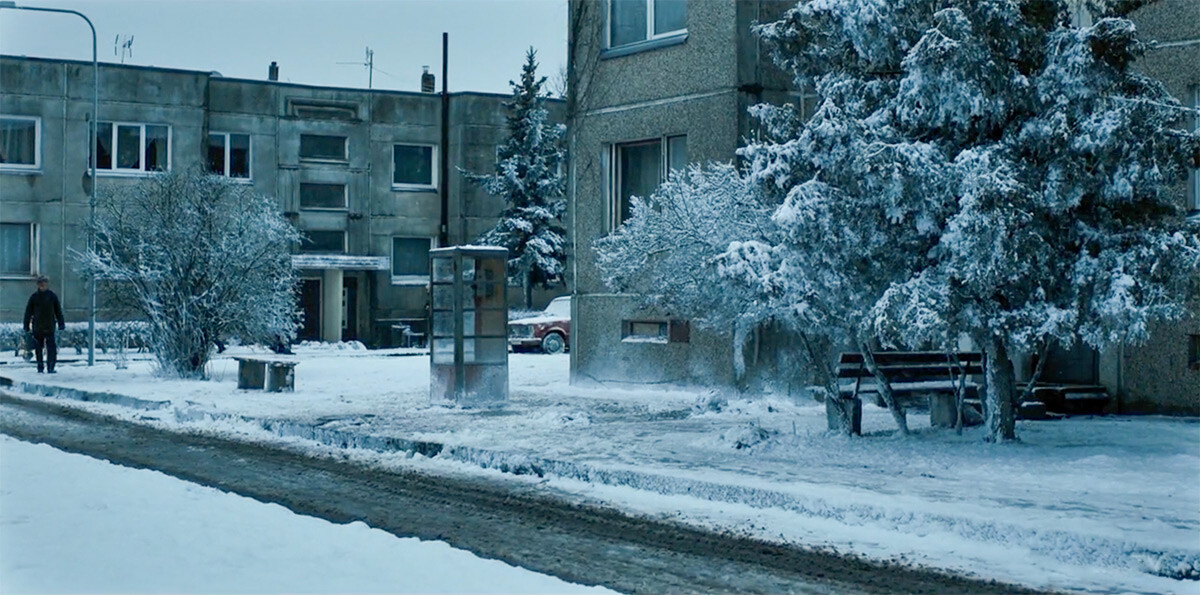
Season 4 sees Kamchatka as more of a collective image of the Soviet penal system - be it the GULAG or an ordinary prison. If you recall the teaser, it repeats the epilogue to Eldar Ryazanov’s legendary Soviet comedy ‘Train Station for Two’ - but it’s unlikely the Duffer brothers ever watched this movie. Nevertheless, they managed to create a very believable Soviet prison that fits with Kamchatka and the year 1986, but, on the other hand, also with regard to the Cold War-era Soviet penitentiary system, in general. All the Russians here are stern and, what’s more - all for the most part speaking very clear, native-sounding Russian, which is rare for American productions. The same goes for inmates, one of whom is played by Russian actor Pavel Lychnikov, well known to Russian audiences, but also American ones, having built a career in Hollywood since the early 1990s, starring in ‘Homeland’ (a feature movie that has nothing to do with the series of the same name) and the American remake of ‘Shameless’, as well as ‘Deadwood’ and the ‘Die Hard’ franchise.
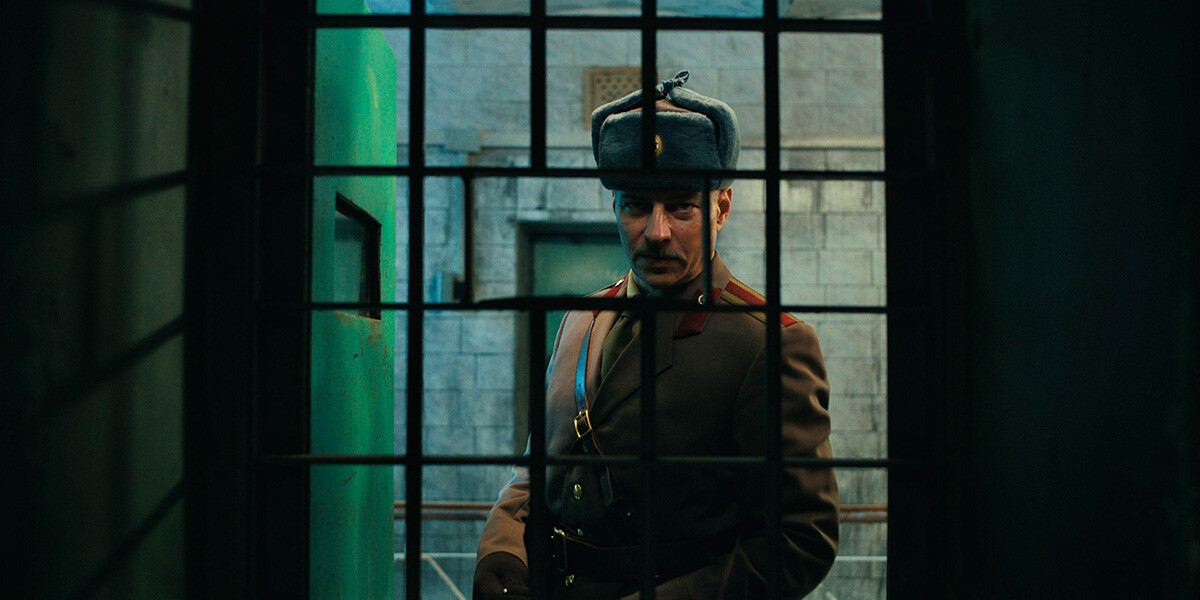
The language of those serving time in Kamchatka deserves special mention. Besides a noticeable absence of accents (perhaps, the only person with one is the German-born Wlashiha, who plays Antonov, the warden who acts as a translator between the character of Jim Hopper and the Russians), the presence of local slang is also important. If we recall the scene with the payphone, we hear the slang term musor (‘garbage’, ‘trash’) when referring to police, which is picked up on and used as a clue by Brett Gerlman’s character - Murray Bauman. His Russian isn’t as perfect as he seems to think, but jargon really was popular. It appeared back in Tsarist Russia, when the detective department of the Moscow police was called the Moscow Criminal Investigation Committee (MCC). The slang persisted throughout the Soviet era.
For several years now, ‘Police’ have been operating in Russia (and not the ‘Militsia’), which is similar to European countries. But ‘Stranger Things’ does continue to hark back to the spirit of the time in its use of hatred, which we can hear in Hopper’s (David Harbour) speech, when he uses words like urod (“creep/freak”) or svinya (“pig”) - very simple words for any language, but also very characteristic of the atmosphere of the place and the period in the series.
And already in these, for now, final episodes (the final 7 episodes are to be relesed in July), we constantly hear the phrase Tovarisch Mayor (‘Comrade Major’) being used to describe the prison wardens, which, by the way, has nothing to do with rank. ‘Tovarisch Mayor’ in Russian slang is (or at least was) often used as a collective phrase - a sort of “chief” or “boss” - when speaking to superiors, particularly employed in law enforcement in a police state and especially, in prisons. And the Cold War-era USSR certainly lends itself to that image.
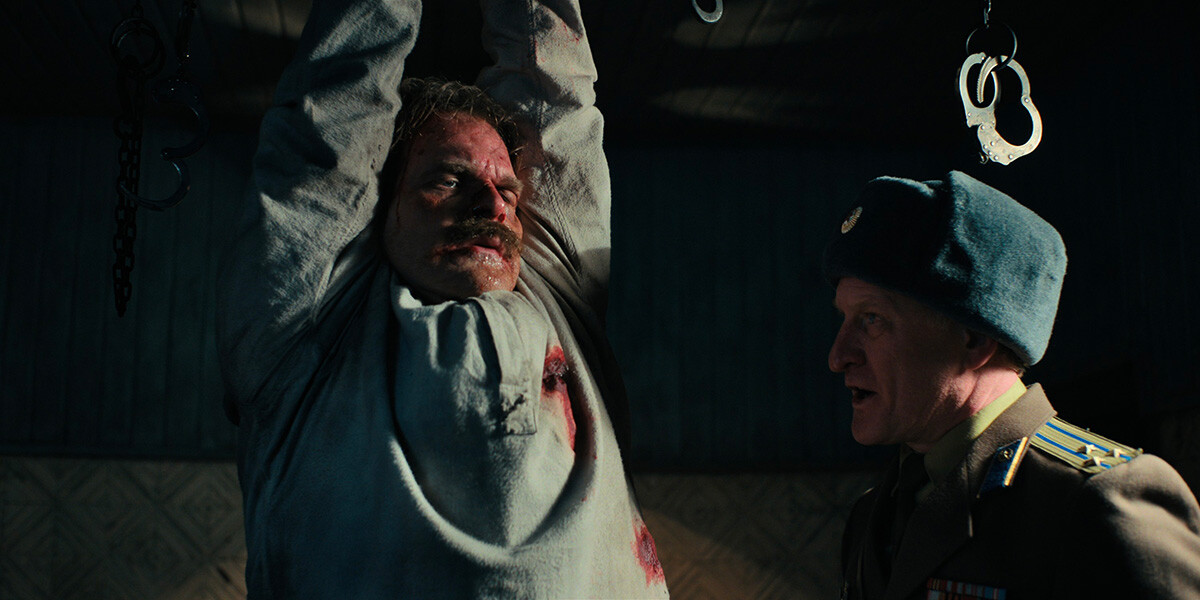
The “Russian trace” in ‘Stranger Things’ also comes through, not only the heroes mentioned above. Another such character is smuggler Yury, who flies his small An-2 plane between Alaska and Kamchatka. His two homes in the series are his plane and an abandoned church. The former seems to have only been produced only in China in the 1970s, although the USSR continued using them. The church, however, acted as a sort of transit point where, according to the plot, Yury could store his contraband and then sell it off to his “tovarischi mayory”. During perestroika, churches in the USSR may well have been abandoned buildings - since Soviet people were originally supposed to be far from religion. Another thing is that many churches - especially by the 1980s - already had a different, completely secular, functionality. However, abandoned religious sites were nothing new, especially in areas as remote as Stranger Things' Kamchatka.
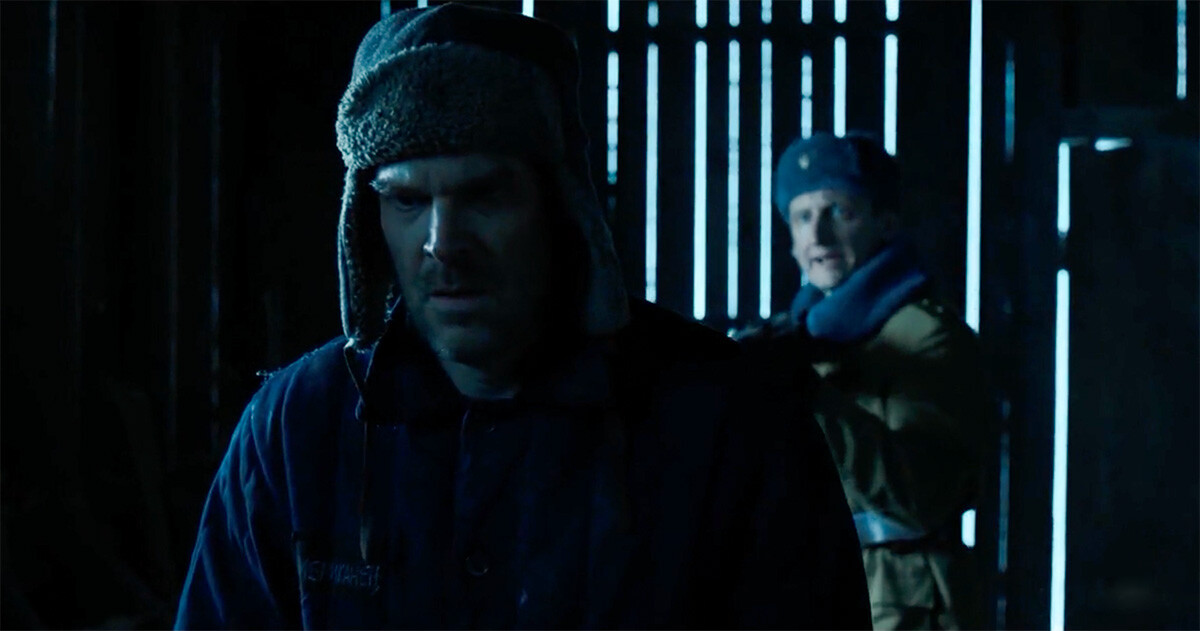
The church is the place of Yury’s most prized ‘lend-lease’ possession: jeans and peanut butter. Both of these items were very much in deficit - even in the days of Gorbachev’s perestroika. Simply going to a store and purchasing them would’ve been impossible. One would have to employ some crafty trickery and personal connections: Yury would’ve been one of those connections. It would seem that he and his cohorts at the prison would have received these items with the intent to resell - not for personal use. Today, peanut butter and jeans are, thankfully, not deficit goods. Neither is the rock band ‘Kino’ - which is now available on most streaming services. But, ‘Stranger Things 4’ does capture the Cold War - in every sense - between Russia and the United States. And they do it super-successfully and believably.
If using any of Russia Beyond's content, partly or in full, always provide an active hyperlink to the original material.
Subscribe
to our newsletter!
Get the week's best stories straight to your inbox